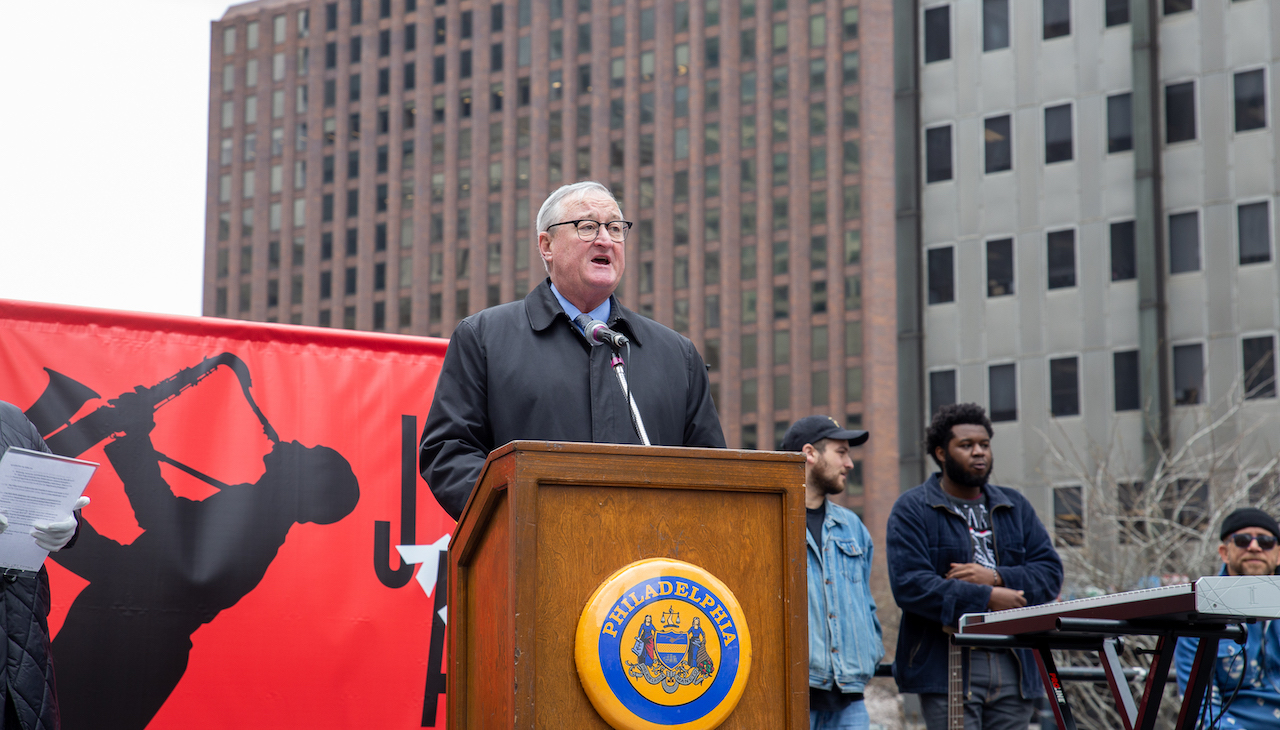
What’s in the $6.2 billion Philadelphia city budget for 2024?
In a 14-1 vote last Thursday June 22, City Council approved the city’s new $6.2 billion budget that will see Philadelphia’s business and wage tax rates fall, increase police funding by $55 million, and the city will spend $45 million more on efforts to recruit and retain city employees.
Set to go into effect July 1, it is the final budget of the long storied careers of both Mayor Jim Kenney and Council President Darrell L. Clarke with both longtime lawmakers leaving office this upcoming January. The budget will increase overall spending 6% over last year due to over $390 million in federal pandemic aid.
Clarke reflected on the journey to getting the budget approved following Thursday’s vote, particularly as negotiations were overshadowed by the Democratic primary for mayor, in which former Council Majority Leader Cherelle Parker was victorious.
Parker will take on fellow former Councilmember and Republican David Oh, and would oversee the final six months of the budget upon taking office in the new year.
“Coming out of the pandemic and during the pandemic, I’m really proud of what we did,” he said. “We were able to have, at most, minimal layoffs, minimal service reduction because we were truly concerned with having a rainy day fund and having a recession fund where we were able to get through the pandemic. A lot of cities almost went under.”
The tax-cut proposals are expected to cost the city $32.7 million in unrealized revenue in the upcoming year after Kenney had originally proposed small reductions to the wage and business taxes, and lawmakers ended up slightly increasing the scope of the cuts.
Councilmember Katherine Gilmore Richardson authored the wage tax cut that’ll reduce the rate for residents from 3.79% to 3.75%. The rate for those working in the city but live outside of it will remain 3.44%. Councilmember Isaiah Thomas supported the reduction of the net profits portion of the business income and receipts tax, which will go from 5.99% to 5.81%.
CONTENIDO RELACIONADO
Councilmember’s Gauthier and Kendra Brooks, who opposed the tax cuts after opposing similar tax cuts last year, said they voted no again this year because they believe the city should further increase spending, and not cut revenue, due to the city’s ongoing gun violence crisis.
“We frequently acknowledge that the budget is a moral document. I could not vote for this budget because the message I think it sends to our residents is that we value the bottom line of corporations and affluent residents more than investing in the municipal services our neighbors need to thrive and survive,” Gauthier said in a speech on the Council floor after the vote.
Kenney’s office has said it does not have the capacity to complete a new reassessment of property values and lawmakers, leaving the tax rate unchanged at 1.3998%.
As a part of the budget, over $42 million will be added to the budget stabilization reserve, or “rainy day fund,” bringing it to a total of $107.4 million. It also includes spending increases in several programs related to quality of life, safety, and jobs.
The budget also includes $5.5 million to be allocated to improve code enforcement and address illegal dumping sites, $5 million to fund a workforce development program in the Streets Department, and $3 million to clean neighborhood commercial corridors.
Over $3 million will be added in order to expand the number of mobile crisis units, which are staffed with health providers who respond to some 911 calls instead of local law enforcement.
“With this final budget, we will build on our success and strengthen our city’s foundation for its next chapter,” Kenney said in a statement. “I am confident that Philadelphia has a bright future ahead, with a healthy financial outlook, and I am more optimistic than ever about Philadelphia’s growth and the opportunities we can create for our residents and future generations."










DEJE UN COMENTARIO:
¡Únete a la discusión! Deja un comentario.